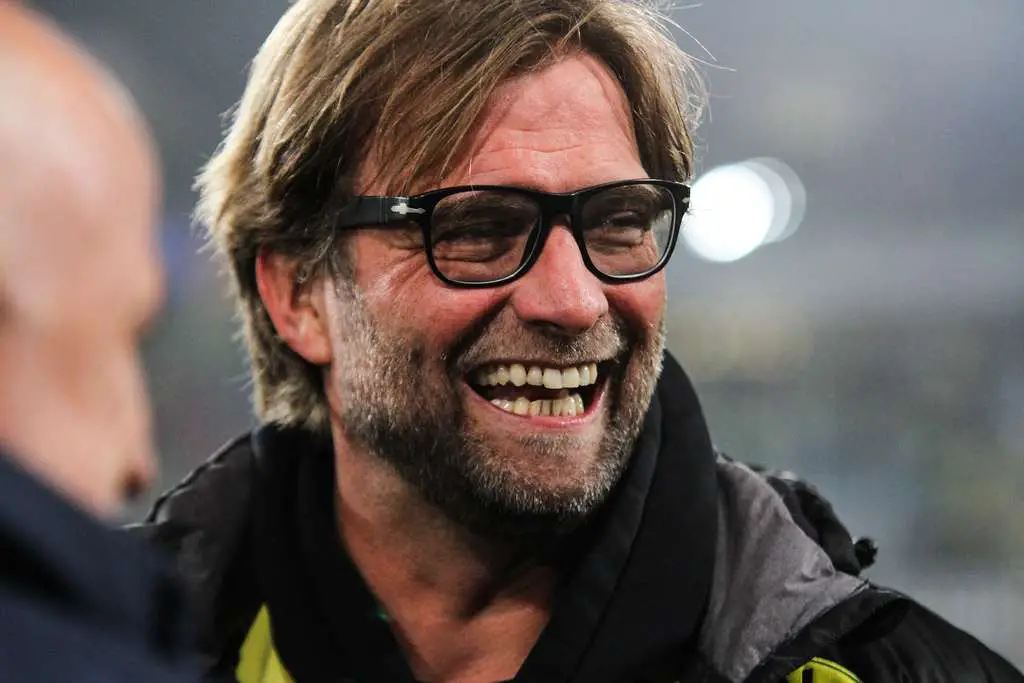Considering it’s Jürgen Klopp’s two year-anniversary at Liverpool, this seems like as good a time as any to follow up on both Klopp’s tactical legacy and how it’s survived into the new age of German football.
Moreover, we discuss Klopp’s time at Dortmund and what that meant for German football. Let’s begin with the latter, due to the obvious reason of chronology.
In 2007, Borussia Dortmund — one of the big clubs of German football — was indulged in a world of chaos. Firing two managers during the season and finishing 9th, it seemed like the club was on its way down from the apparent highs of late 20th Century and early 21th century.
However, in the summer of 2008 German manager Jürgen Klopp was named the new coach of the big Traditionsverein from old Prussia and the club has not looked back since.
Prior to joining BVB, Klopp himself had managed 1. FSV Mainz 05 for seven years and so he was already a very experienced coach with a clear philosophy. He had taken Mainz to Bundesliga for the first time in their history and was already seen as somewhat of a club icon. His Nullfünfer played great attacking football concentrating on pressing high up the pitch. Klopp’s charismatic display on the sidelines also made him a kind of star among managers.
Klopp’s first season was an improvement of the seasons before him, guiding BVB to a sixth placed finished in the 2008/09 Bundesliga season before improving on that the following year, finishing fifth.
Then the fame began. In 2010/11, Dortmund had won the Bundesliga, just two years after Wolfsburg shocked the world by winning it. Bayern’s dominance was truly questioned, and rightly so. Borussia Dortmund won the league again in 2011/12 and with some help from an amazing Robert Lewandowski, they amassed a grand total of 81 points in 34 games, which is a league record.
Then Klopp signed Marco Reus from Borussia Mönchengladbach and the team soon flourished and would have won the league, was it not for Jupp Heynckes amazing treble-winning Bayern München. This season — 2012/2013 — was when the world realised Borussia Dortmund were the real deal. This was also the season the word “hipster” came alive once again in world football.
Reus came to be the new symbol of Klopp’s Borussia Dortmund when Mario Götze joined league rivals Bayern in 2013 and his flair and speed epitomises both Borussia Dortmund and German football.
Die Schwarzgelben became a symbol for something new, something fresh and differed from the more and more monotone Premier League. Dortmund’s football soon came to be the example for many teams in Europe and also became a monument of how to play aggressive and exciting football in a world dominated by possession-based teams and coaches. The contrast Klopp provided created a perfect platform for a new rise of German football and it was during this rise the Bundesliga expanded and became as global as it is right now.
What about Jürgen Klopp’s legacy?
Jürgen Klopp’s attacking football and his pressing tactics, called ”Gegenpressing”, isn’t that new. The system was invented by the Dutch in the 70s and was applied to Dortmund’s squad due to Klopp’s knowledge and smartness. He made it work and it was as overwhelming as it was terrifying to come up against. While that certainly was the case during the glory years of Klopp’s Dortmund, his fall during the 2014/15 season came to be the end of the overwhelming nature of gegenpressing.
In 2015, Gegenpressing became go-to tactics for most German teams and you don’t need to be an expert to figure out how a German team would play. The problem was figuring out how to stop it.
The latter is still discussed. How do you stop Gegenpressing? It’s not easy to solve and therefore it’s still unpredictable, but it is not as overwhelming and not as exciting as it once was. Klopp’s Gegenpressing developed German football, providing a platform due to the contrasts. However, it also created a predictable football match. Most coaches facing German teams know what kind of football they are going to be up against. A handful of managers know how to stop it, but most managers know what they’ll be up against. They can therefore prepare for it.
It’s a rather confusing paradox actually. Klopp created the current state of Bundesliga in two ways. He primarilly made it global with Borussia Dortmund, but his legacy has made the tactics of many teams predictable and therefore it’s also on its way down, as we have seen in recent weeks with horrible results in Europe among other things. It’s because of Klopp we got to experience the modern glory days of Bundesliga, but its also due to Jürgen Klopp we now get to experience the downfall of the very same.
The tactics have been simplyfied by many coaches, used by as many managers and applied by thousand of coaches worldwide, I’m one of those myself. Gegenpressing, or even high pressing, has become the go-to tactics for a team in need for a good philosophy and while that’s good and all, it’s very predictable and therefore not difficult to see why the best teams in the world do not play Gegenpressing.
By Axel Falk.










